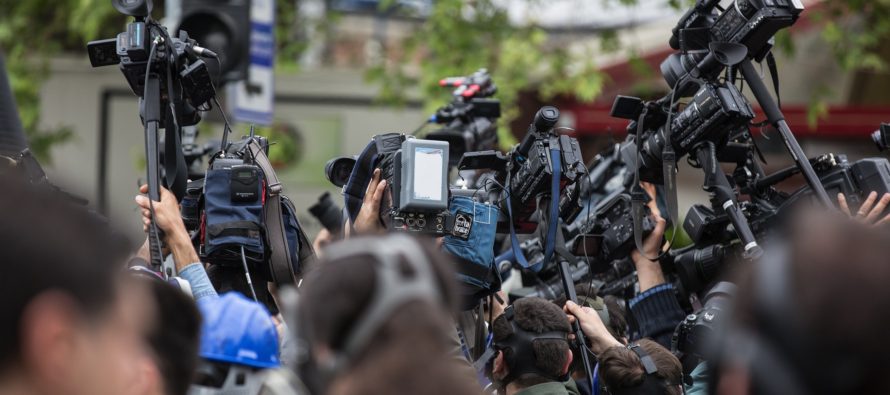Digital media changes news landscape

Robert Benzie walks into his brightly lit office with windows from floor to ceiling.
He logs onto his computer, pulling up Reddit and Twitter to scan for news; it’s time to start the day.
Benzie is the Queens Park Bureau Chief for the Toronto Star covering Ontario and Toronto Politics. Benzie started his journalist career in the 1990s at the Ottawa Sun and Toronto Sun.
Starting at the Toronto Star in 2003, he is now responsible for coordinating provincial politics coverage at Queen’s Park.
Digital media has created both opportunities and challenges for journalists and Benzie has seen the shift firsthand over his 30 years in newsrooms.
“Back then we didn’t have the internet, literally didn’t have the internet,” said Benzie. “We didn’t have google, we didn’t really have anything in the way of digital tools.”
Benzie described how there was no “cut and paste” when he first started as a journalist.
He would call people for information, go to places or events, and use the library.
“Every newspaper has a library and they call it the morgue, and you look through clipping files. You’d go through the clippings, and you’d actually pick out the piece of news print that librarians had cut and stamped the date on,” said Benzie.
Reuters, the largest international news company, released their 2022 Digital News Report.
The report said 16% of Canadians consume news by print and 58% consume news by traditional television, 77% of Canadians access their news online and through social media.
Benzie has seen the internet change the newspaper industry while working at the Toronto Star.
“What happened when the internet came along is newspapers didn’t see this as a threat and gave everything away for free,” said Benzie. Due to this, many media outlets have since closed in Canada.
The Canadian Association of Broadcasters (CAB) released a study titled “The Crisis in Canadian Media and the Future of Local Broadcasting.” CAB represents a majority of the private radio and TV stations in Canada.
The study said the internet, with its targeted audio, web, and video media, means competition for advertising dollars and for consumers’ time and attention.
CAB added by the end of 2023, local TV and radio broadcast stations will face a revenue fallout of $1.06 billion, and more than 100 stations will be closing their doors.
Benzie said digital media has made searching for news more accessible.
Benzie recalls how difficult a murder victim story would be. His editors would want a photo of the victim, and the only place to retrieve a photo is from the woeful family.
He would have to go knock on grieving families’ doors, days if not hours after the murder. Benzie would sometimes lie to his boss saying no one was home when really he didn’t knock at all, avoiding having to get the picture and disturb a family.
On the other hand, sometimes mothers would give Benzie an entire photo album. He would keep the album until he released the story, stopping other outlets and reporters from getting a photo.
There’s always been competition in journalism, but digital media is raising the stakes.
Kurlis Mati is a reporter and anchor for AM800 CKLW News in Windsor. Mati expressed how digital media is creating more opportunities in the field of journalism.
“There’s more opportunity now to be an entrepreneur, there’s more opportunity now to do your own thing,” said Mati.
With the expansion of social media platforms, journalists and news outlets are competing for clicks with the wide range of content available.
“Everything now is very digital oriented, if you’re posting a story onto the website, you have to post it on social media, you have to post it on Facebook, you have to post it on Twitter” said Mati.
Mati explained how difficult it is to be the first person that pops up on someone’s timeline or to be the first article that someone clicks on because of the excess of content.
“The thing about media now is that everyone has low attention spans so everything is so sporadic, there’s so much going on on social media and you’re competing with so many things,” said Mati.
Benzie is very weary of the misinformation and disinformation on the internet and stresses how important critical thinking is for consumers and journalists.
“I take most of what I read on Twitter with a grain of salt because there’s a lot of conjecture and opinion that’s disguised as news gathering,” said Benzie.
In the future Benzie sees more and more companies using paywalls as ways to increase revenue.
“I think that getting people to pay for the news is important because it costs a lot of money to gather the news in a responsible way,” said Benzie.
After 30 years Benzie still enjoys walking into his office every day as each day is different. He said “It’s not really work, it’s a passion project.”
Benzie said “I still hope someone can find the magic sauce to make mainstream media like ours profitable or sustainable.”


